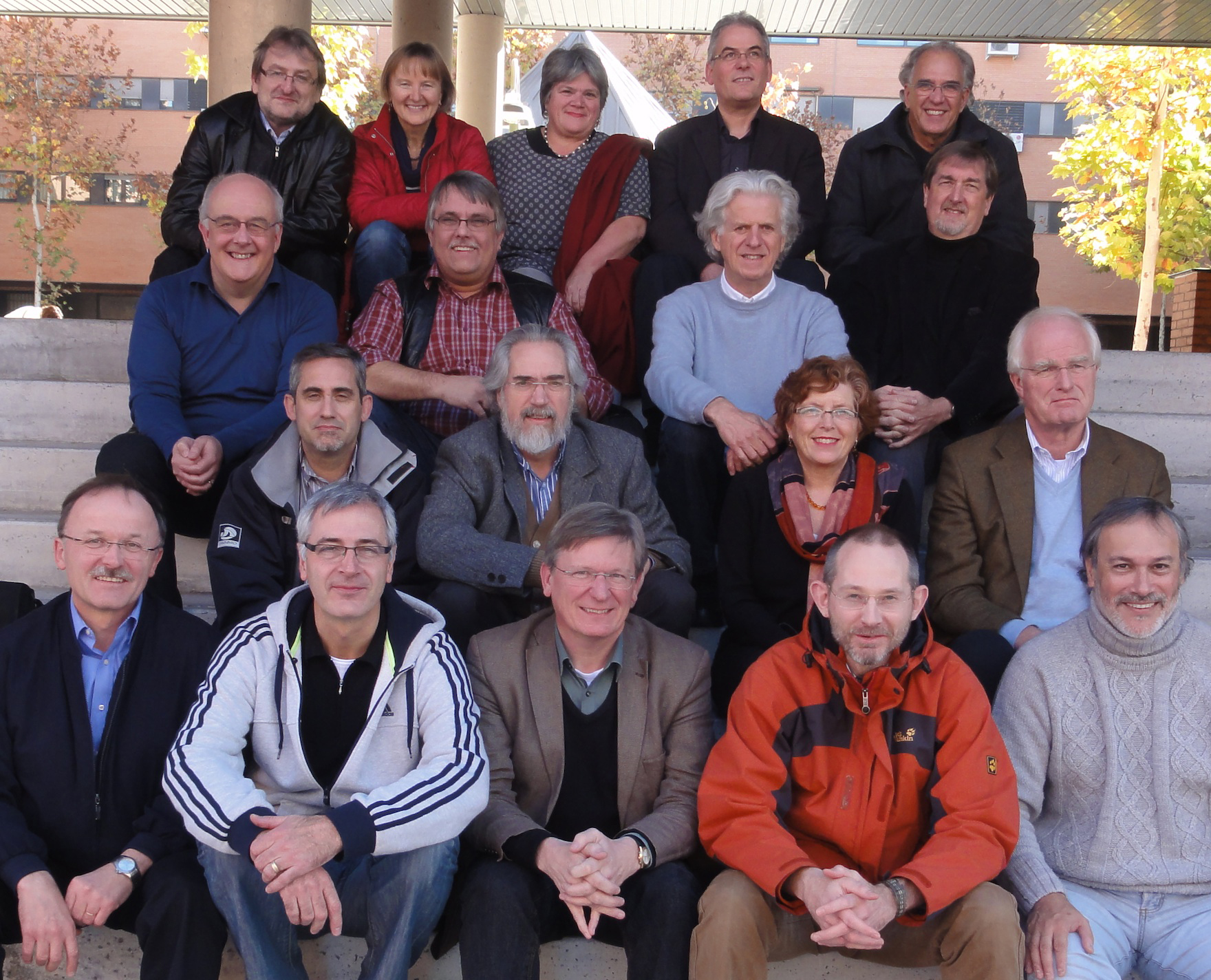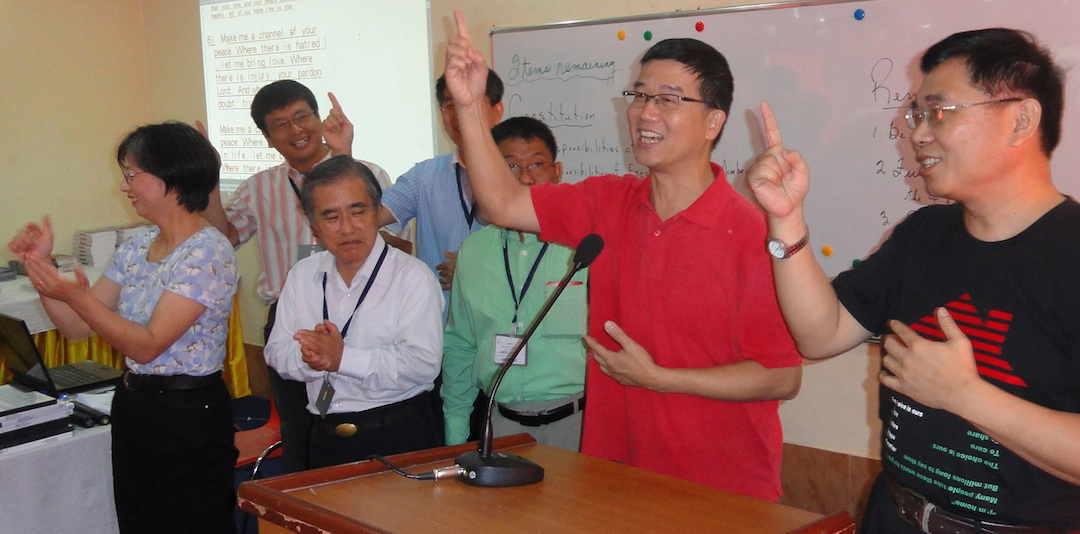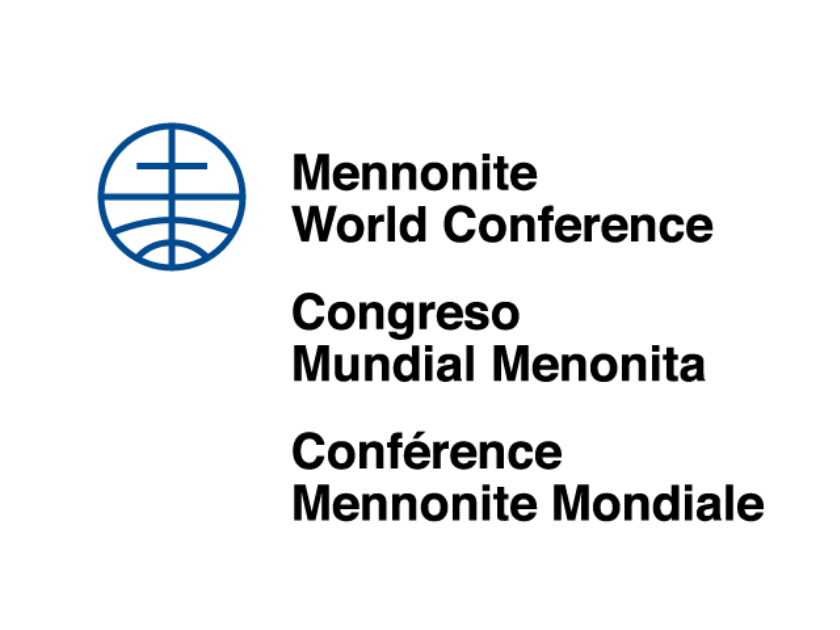-
Well attended women’s conference in Zimbabwe spawns a wider network
Mtshabezi, Zimbabwe—A women’s conference held here in April 2011 attracted more than 1,300 women and resulted in the formation of an “interlink” committee to carry forward the vision of the organizers. The purpose of the gathering was to “link and network on worship matters” among Brethren in Christ and Mennonite women, to learn about income
-
Bert Lobe to retire in December; will assist with MWC transitions
St. Jacobs, Ont., Canada—Bert Lobe of St. Jacobs, Ontario has announced that he will retire from his work with Mennonite World Conference (MWC) at the end of 2012. He has served with MWC since 2008. During this year he will assist the new General Secretary, César García, with the many transitions that come with a
-
Operations Team appointed in new MWC structure
Bogotá, Colombia—In January, Mennonite World Conference (MWC) General Secretary César García unveiled a new staff structure developed with the assistance of consultants James and Karen Klassen Harder of Bluffton, Ohio. The growth and maturity of MWC, commented the Harders, means that the office of the General Secretary will need to delegate more responsibility to management
-
No longer foolish and small
Sukodono, Indonesia–In 2008 I went to Cairo, Egypt, under YAMEN! to work at the Anaphora Retreat Centre of the Coptic Orthodox church. I used my limited English language as a basis for learning Arabic. After a month and a half, however, just as I was getting the feel of Egypt, a friend drove me to
-
Brethren in Christ Church in South Africa celebrates conference status
Energetic music, lively dance, and passion for the church they belonged to was apparent to those who came, both church delegates and visitors, to the conference held just outside of Johannesburg from April 15-17, 2011. A second celebration was then held from October 14-16, 2011, as this commemorated the recognition of the South African Brethren
-
Church in India celebrates centennial
Dhamtari, India — The Mennonite Church in India celebrated its 100th anniversary Oct. 27-30 with a gathering of about 1,000 people at Sunderganj Mennonite Church. The MCI is one of eight MWC member churches in India. The MCI traces its origins to a 1912 meeting in Balodgahan convened by Mennonite mission workers and visiting representatives
-
Europeans plan to hire coordinator; seek to be ‘a place of blessing’
Madrid, Spain—At their annual gathering, held here in November 2011, leaders of European Mennonite conferences decided to hire a coordinator to serve as their liaison to Mennonite World Conference (MWC) and to fulfill some coordination tasks for the European conferences. They also reflected on the challenges they face in the European context. The decision to
-
MWC Asia Caucus strengthens identity and looks to future
Kolkata, India—Strengthening Anabaptist identity, learning more about Mennonite World Conference (MWC) and their responsibilities and proposing priorities for the future were the main issues that engaged Asian members of the MWC General Council at a training session for the Asia Caucus November 15-19, 2011 in Kolkata, India. The event was attended by 32 persons, including
-
Peace-building model takes root in Colombia
Arauca, Colombia—A grassroots peace-building model, initially developed by Ricardo Esquivia, a Mennonite leader in Colombia, is being utilized in a growing number of places. The model, called Citizen Commissions for Reconciliation (CCR), now links 220 organizations on the Caribbean coast of Colombia. An international forum held May 4-5, 2012 in Arauca, Colombia, was based on
-
Historique du réseau francophone; un peu d’histoire
L’Église mennonite du Congo est l’une de celles qui croissent le plus rapidement dans le monde ; elle a été essentiellement implantée par des missionnaires mennonites anglophones d’Amérique du Nord. Bien que située dans la francophonie au sens large, ses ressources proviennent essentiellement du monde anglophone. Pendant les rencontres de la Conférence Mennonite Mondiale (CMM) en
-
MWC contributing carbon tax to global projects
In recognition of the environmental impact of their global work, Mennonite World Conference staff and executive committee members are now imposing a simple surcharge on themselves for each mile that they travel by air. The plan, approved in August by the MWC Executive Committee, went into effect October 14 when MWC administrator Karen Martin Schiedel









